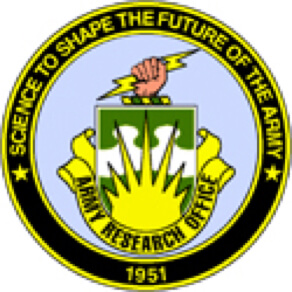The Medial Temporal Lobe and Memory
Our memories are the essence of who we are. The skills we have acquired, the knowledge we have amassed, and the personal experiences we have had define us as individuals. The overarching goal of our research is to understand how our brains support our memories. Our work focuses primarily on the neurobiological systems that allow us to remember the individual events of our lives—termed episodic memory—with a particular emphasis on the hippocampus and surrounding medial temporal lobe region. Damage to this "memory circuit" through disease or injury produces profound memory impairments. Without this brain region, individuals are unable to remember the people they meet, the places they go, and the events they experience. The fundamental question is why? What does this brain region do that makes it so essential for recording our everyday experiences? To answer this question, we use a number of techniques on the leading edge of human cognitive neuroscience, including high-resolution functional magnetic resonance imaging (fMRI), multivariate pattern information analyses, and model-based analysis of fMRI data.
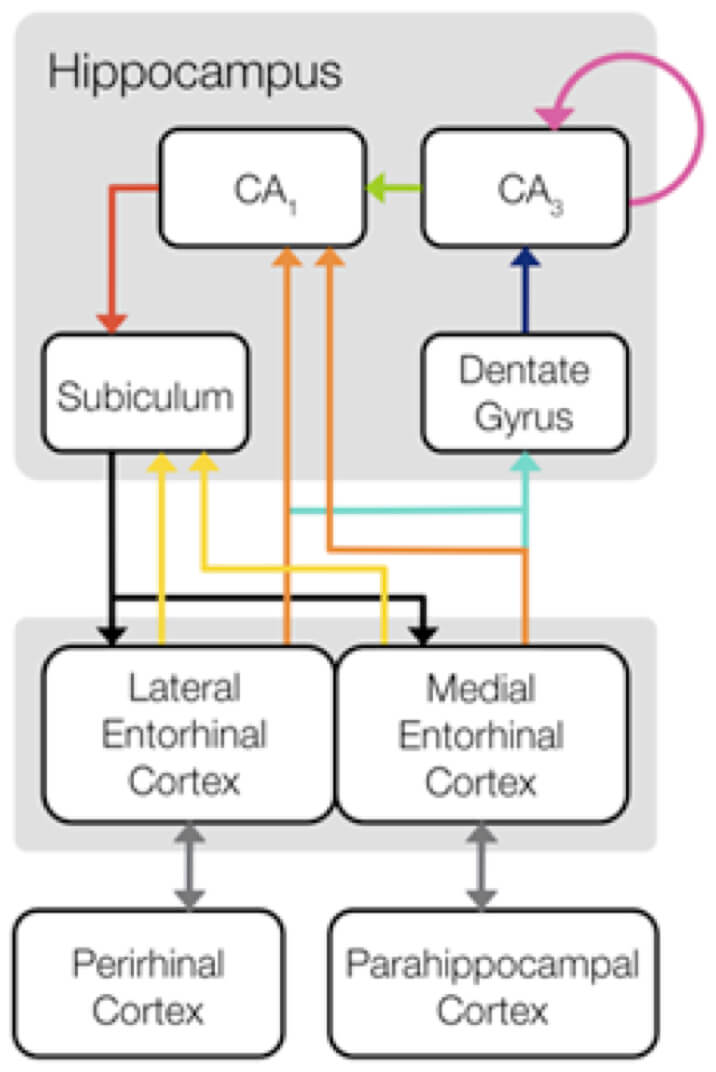
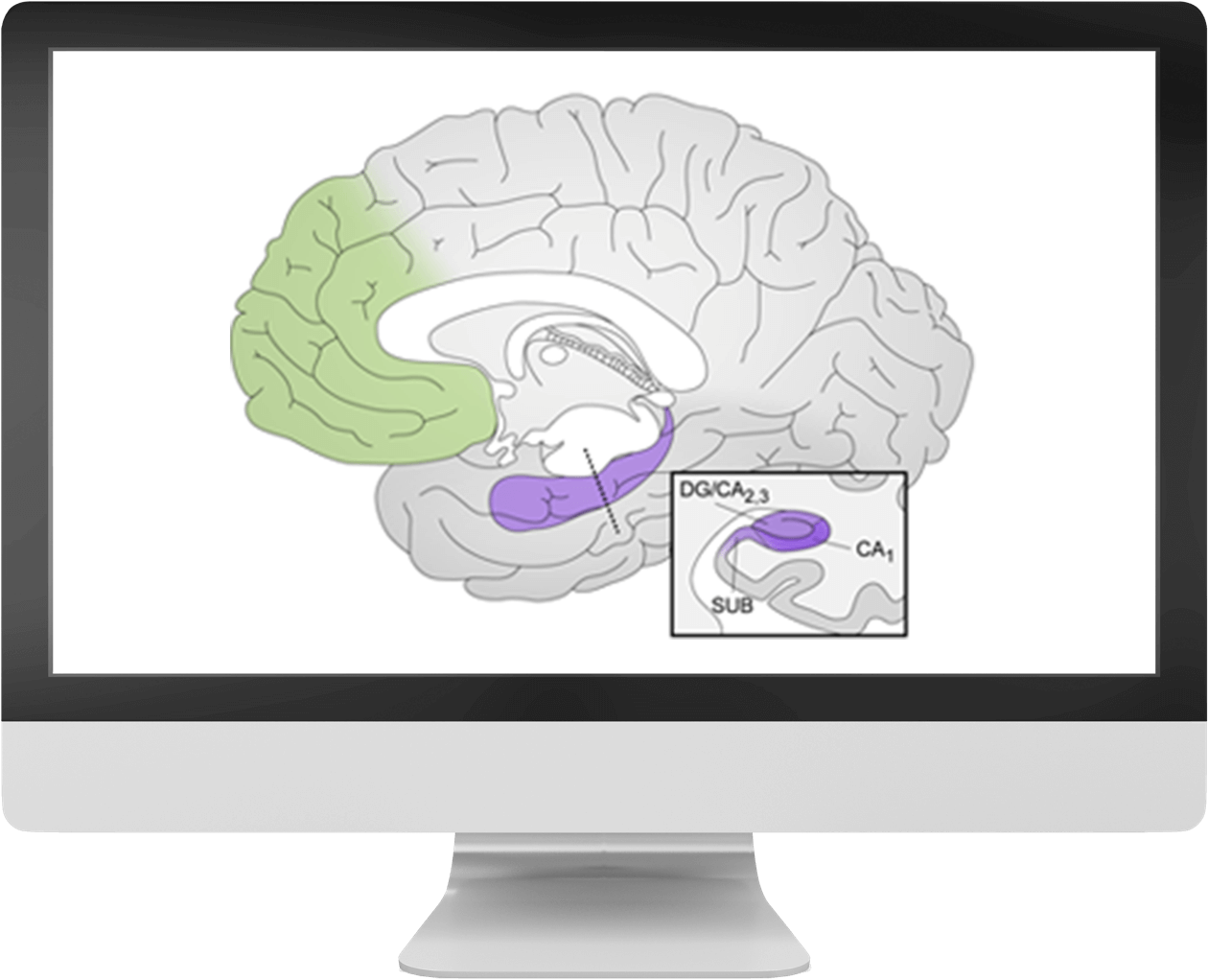
Memory Integration and Reasoning
The vast majority of memory research has focused on how our brains store and recall individual events. However, memories are not isolated from one another in the real world. Each day, we experience and learn a host of new things, many of which are highly related to each other and to our existing knowledge. How do memories for related experiences interact? How do they become linked in the brain to form meaningful networks of memories? How do these memory networks later support our ability to think, act, and reason in a new situation? This line of research explores how our memories reach maximal adaptiveness by extending beyond direct experience to inform new behaviors.
Concepts and Categories
We understand new experiences by mapping them onto what we know. Our knowledge is organized into different concepts and categories, making information about our environment easily accessible. For example, within a glance, we can easily categorize a vehicle as a truck or a sedan. We have found that the brain forms "cognitive maps'' that help organize our knowledge about the differences between categories. We use fMRI with multivariate pattern analysis and computational modeling to examine how cognitive maps are formed and used to represent knowledge about the world.
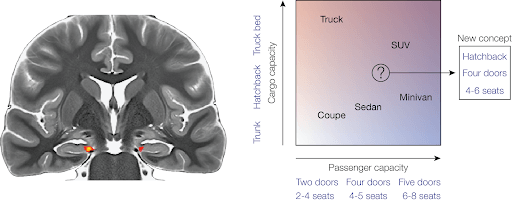
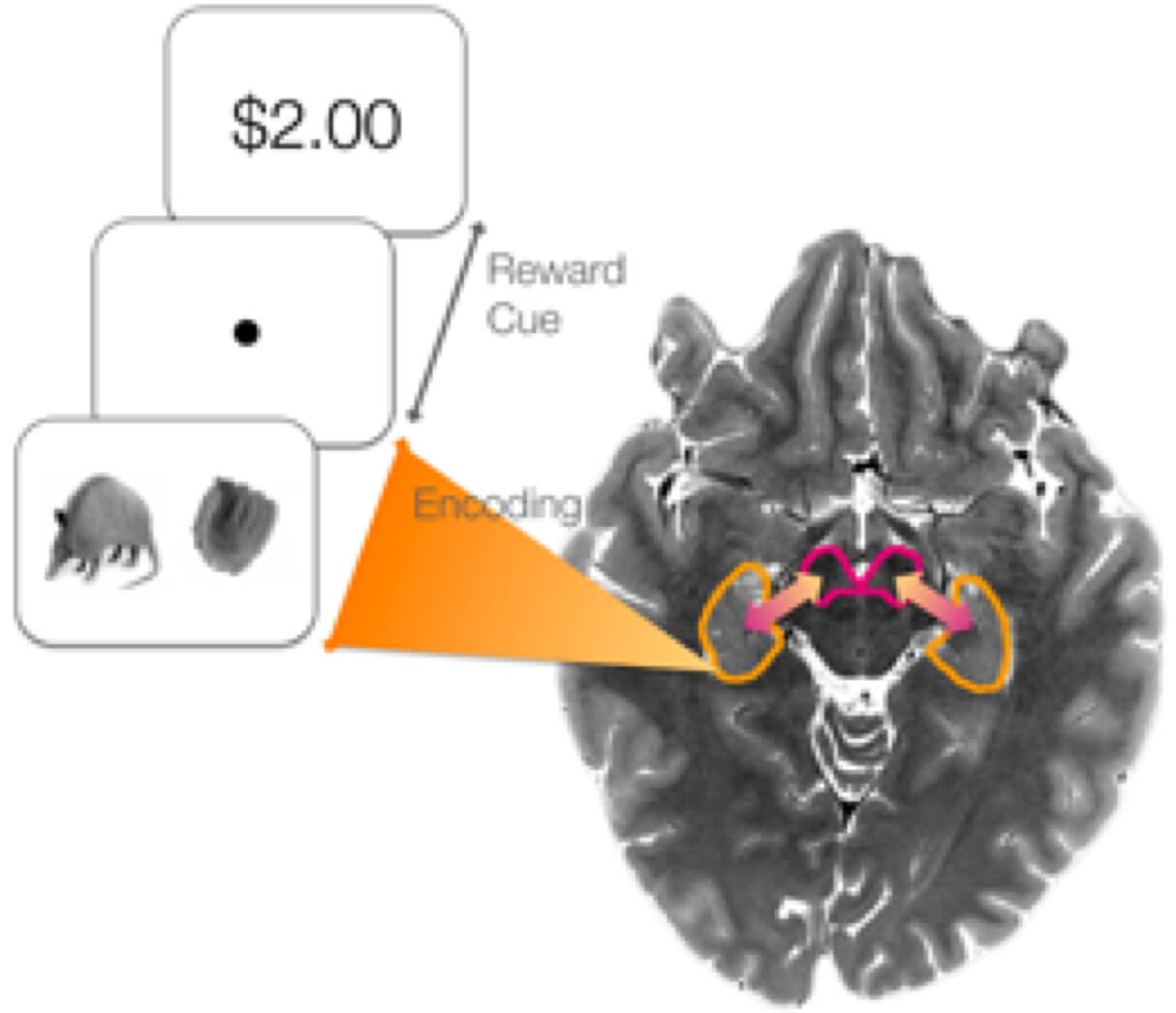
Interactions Between Emotion, Motivation and Memory
People often remember emotional events, such as weddings, funerals, or birthdays, better or more vividly than neutral events. Similarly, people tend to remember more information about an event when they are motivated to learn by the potential gain or loss of a reward. Current research suggests that emotion and motivation not only impact how well we remember different types of information, but also how related events and experiences are associated together in long-term memory. This line of research investigates how emotion and motivation impact the neural processes that support memory formation, leading to more detailed memories that stand the test of time.
Memory Development
Previous studies have suggested that the brain's so-called "memory circuit" reaches full, adult-like function relatively early in childhood. However, emerging research from our lab and others highlights memory as much more than a simple record of life events. We know that every day, our memories work to help us reason about the world, understand concepts, and remember new things that happen to us. As such, it is becoming increasingly clear to researchers that the memory circuit does not function independently. Rather, it needs to interact with other areas of the brain—areas that are known to develop well into early adulthood—to perform these kinds of important functions. In this line of research, we are interested in understanding how our ability to effectively remember and reason about our experiences develops from the time we are children, and how this development relates to changes in the underlying brain structures.
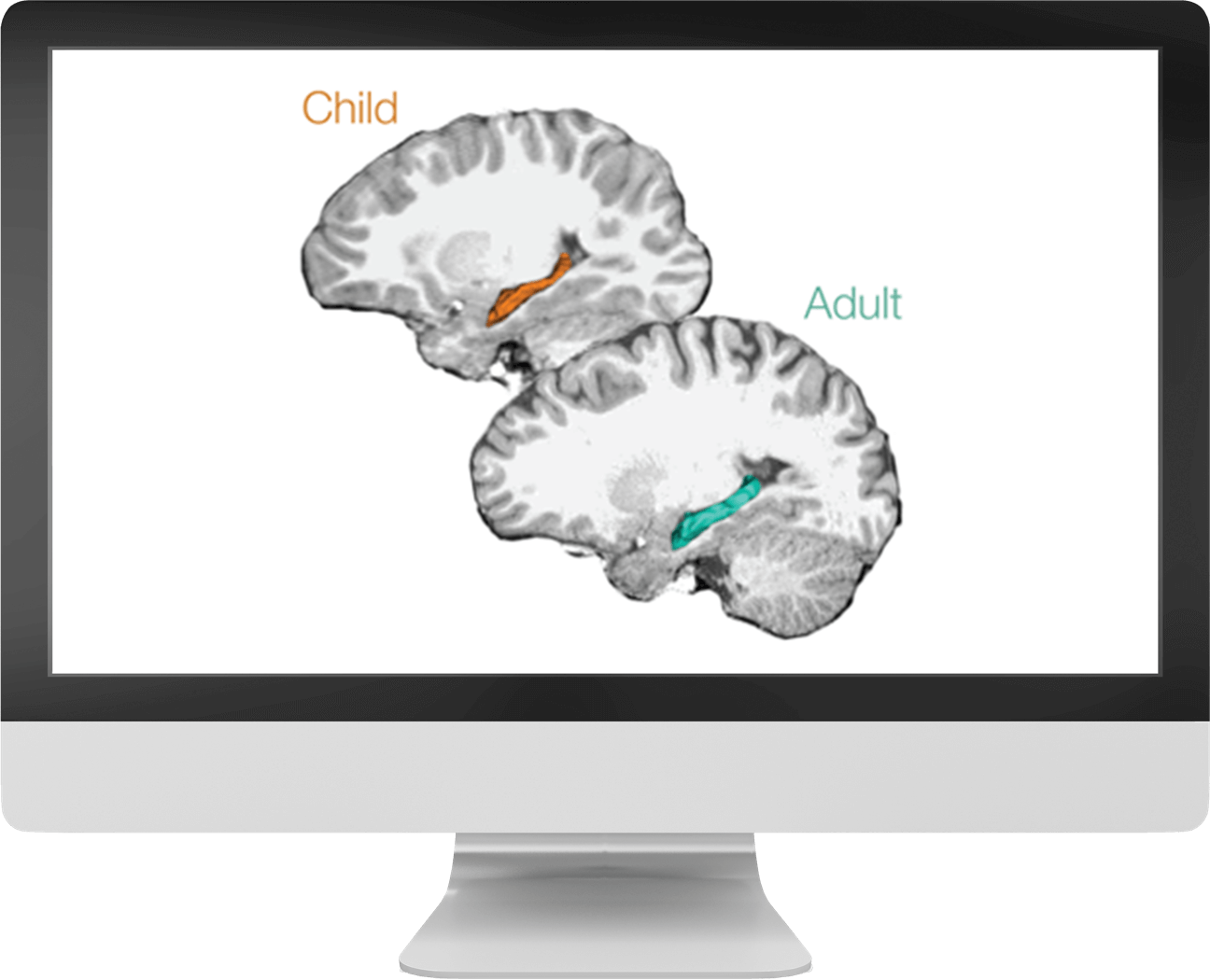
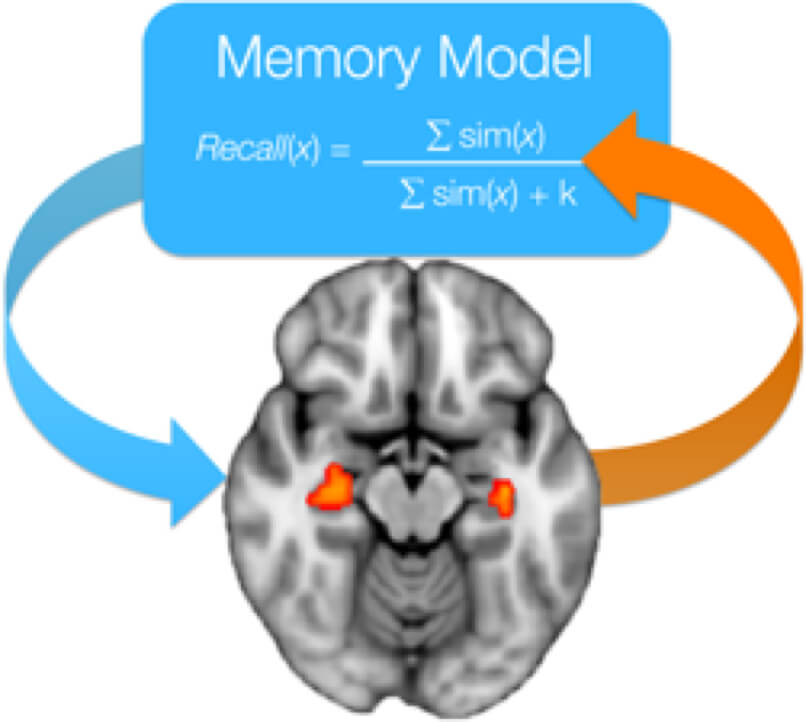
Computational Approaches to Understanding Memory
Decades of theoretical and behavioral research in memory has led to the development of formalized computational models. These models not only predict how we remember and categorize experiences, but also describe the specific mechanisms and computations that support these behaviors. We study the link between memory models and brain response in two ways: 1) we use computational models to analyze fMRI data to identify how the computations of memory are implemented in the brain and 2) we use fMRI data to judge which memory model provides a better account of behavior and brain response.




